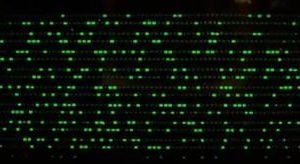dna replication
Collisions of protein machines cause DNA replication derailment
Scientists have published results that will forever change the way researchers view the interplay between gene expression, DNA replication and the prevention of DNA damage.
DNA damage, if not kept in check, can lead to many problems including can…
Method of DNA repair linked to higher likelihood of genetic mutation
INDIANAPOLIS — Researchers from Indiana University-Purdue University Indianapolis (U.S.A) and Umea° University (Sweden) report in a study published in the February 15, 2011, issue of PLoS Biology that a method by which cells repair breaks i…
VCU Massey first to combine targeted agents to kill multiple myeloma cells
Richmond, Va. (Feb. 10, 2011) — Scientists at Virginia Commonwealth University Massey Cancer Center have developed a novel treatment strategy for multiple myeloma that pairs two targeted agents to kill cancer cells. The study’s findings, published…
How the hat fits: Structural biology study reveals shape of epigenetic enzyme complex
To understand the emerging science of epigenetics — a field that describes how genes may be regulated without altering the underlying DNA itself — scientists are deciphering the many ways in which enzymes act on the proteins surrounding DNA …
Exposure to low doses of BPA alters gene expression in the fetal mouse ovary
A study posted today (Wednesday, August 25) at the online site of the journal Biology of Reproduction reports that exposure of pregnant female mice to the endocrine-disrupting chemical bisphenol A may produce adverse reproductive consequences on gen…
Protective protein blocks DNA breaks at fragile sites
With 46 chromosomes and six feet of DNA to copy every time most human cells divide, it’s not surprising that gaps or breaks sometimes show up in the finished product – especially when the cell is under stress or dividing rapidly, as in cancer. But what is surprising is that the breaks don’t always occur at random. They happen at a few specific locations on chromosomes, when cells are under stress, during the stages in the cell cycle where DNA is copied, or replicated, and the cell splits into two identical daughter cells. Scientists call them fragile sites, but the reasons for their inherent instability have remained a mystery. Now researchers have discovered that a protein called ATR protects fragile sites from breaking during DNA replication.

